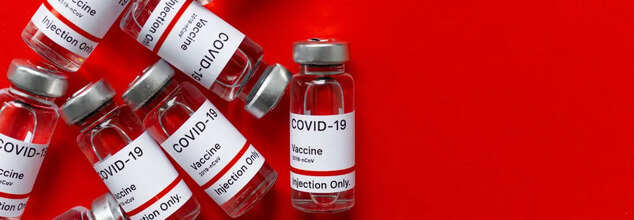- Health Conditions A-Z
- Health & Wellness
- Nutrition
- Fitness
- Health News
- Ayurveda
- Videos
- Medicine A-Z
- Parenting
- Web Stories
Healthy Relationships: Resolve a Conflict Between Couples Without Escalating It

Conflict Free Relationship (Credit-Canva)
Conflicts are a natural part of any relationship, but it's important to resolve them in a constructive manner to maintain a healthy bond. By understanding effective communication strategies and practising empathy, couples can navigate disagreements without escalating them.
Here are some practical tips for resolving conflicts between couples in a healthy and productive way. By following these guidelines, you can strengthen your relationship and build a stronger connection with your partner. These strategies can help you overcome challenges and create a more harmonious and fulfilling relationship.
Best Ways To Resolve Conflict
Conflicts are a natural part of any relationship. However, it's important to resolve them in a constructive manner to maintain a healthy bond. Here are nine ways to resolve a conflict between couples without escalating it.
Choose Your Timing
Avoid discussing sensitive topics when you're tired, stressed, or hungry. These factors can make it more difficult to communicate calmly and rationally. Pick a time when both of you are calm and can focus on the conversation. This will increase the chances of a productive and respectful discussion.
Active Listening
Give your partner your full attention and actively listen to what they have to say. Avoid interrupting or jumping to conclusions. Show that you understand their perspective by paraphrasing what they've said. This will help build trust and understanding between you and your partner.
"I" Statements
Use "I" statements to express your feelings and avoid blaming your partner. For example, instead of saying "You always forget to take out the trash," say "I feel frustrated when the trash isn't taken out." This helps to avoid putting your partner on the defensive and makes it easier for them to understand your perspective.
Avoid Personal Attacks
Refrain from attacking your partner's character or making hurtful comments. Focus on the issue at hand, not on your partner's personality. Personal attacks can damage the relationship and make it difficult to resolve the conflict.
Take a Break
If the conversation becomes heated, take a break and come back to it later when you've both had time to cool down. Stepping away from the situation can help you both regain your composure and approach the issue with a clearer head.
Find Common Ground
Look for areas of agreement and try to build on them. This can help you find a solution that works for both of you. Even in the midst of a disagreement, there are often areas where you can find common ground. Focusing on these areas can help you move towards a resolution.
Seek Professional Help
If you're struggling to resolve a conflict on your own, consider seeking the help of a couples therapist. A therapist can provide guidance and tools to help you communicate effectively and resolve your differences. A therapist can also help you identify underlying issues that may be contributing to your conflicts.
Compromise
Be willing to compromise and find a solution that works for both of you. Sometimes, it may be necessary to give up something to reach a resolution. A willingness to compromise shows that you value your relationship and are committed to finding a solution.
Practice Forgiveness
Holding onto grudges can make it difficult to resolve conflicts. Practice forgiveness and let go of past mistakes. Forgiveness doesn't mean forgetting what happened, but it does mean letting go of the anger and resentment that can keep you stuck in the past.
That 'One Thing' That Doesn’t Belong Anywhere Near Your Lady Parts

Credits: Canva
Before you reach for another wipe, spray or “feminine fresh” gel, hit pause. Because here’s the uncomfortable truth: your vagina doesn’t need it and definitely doesn’t want it. Despite what the feminine care aisle might be selling, your vagina is not a high-maintenance diva in need of lavender-scented lotions or internal rinse rituals. It’s actually one of the most self-sufficient parts of your body. Yes, your vagina is a self-cleaning organ, designed to maintain its own delicate balance without a single pump of perfumed soap. But the booming feminine hygiene industry is banking on your doubt—and potentially compromising your health in the process.
So what’s the one thing you should never let near your lady parts? It’s douching. But it’s not the only culprit. Here’s the deep dive into why your vagina wants you to back off the products, how you might be doing more harm than good, and what science-backed swaps truly support your body’s natural balance.
Why Vaginal Soaps and Washes Are Overrated?
It’s easy to be seduced by pastel packaging and promises of feeling “extra clean.” But according to Professor Willa Huston, a women’s health microbiologist at the University of Technology Sydney, using these soaps does far more harm than good.
“The tissue in this area is much more sensitive and delicate than the skin on your arm,” she explains. “Chemicals used in scents can irritate, damage tissue, and increase the risk of infections.”
Your vulva (the external part of your genitalia) can be cleaned with warm water, and if soap is truly needed, it should be mild, unscented, and used sparingly—never internally. Because every time you over-clean or scrub your way to “freshness,” you risk wiping out the very bacteria that are there to protect you.
What is the Problem with Feminine Wipes?
Marketed as on-the-go saviors for sweaty days or post-workout freshness, feminine wipes are often anything but gentle.
“They can disrupt the natural pH and reduce beneficial bacteria,” Huston warns. These bacteria are essential for maintaining your vagina’s protective microbiome.
While they may be convenient in emergencies, they shouldn’t become part of your daily routine. If you absolutely must use them, choose pH-balanced, fragrance-free versions—and treat them like you would dry shampoo: a temporary fix, not a lifestyle.
Sprays, Deodorants, and the Shame Game
Let’s be real, your vagina shouldn’t smell like a tropical smoothie.
Using sprays and deodorants down there can cause allergic reactions, irritation, and even mask symptoms of infections like bacterial vaginosis or yeast infections.
Instead of covering up, tune in. If you notice an unusual or persistent odor, it’s your body’s way of waving a red flag. Call your doctor—don’t cover it in coconut-scented mist.
The One Thing That Absolutely Doesn’t Belong Inside You: Douching
If there’s one thing experts agree on, it’s this: never douche.
Douching flushes out the vagina’s natural defenses, increasing the risk of infections, pelvic inflammatory disease, and even fertility problems. According to multiple studies, it disturbs the pH, damages healthy bacteria, and can cause more harm than any other hygiene habit. In short, it’s a hard no.
Your vagina has its own built-in cleaning crew—there’s absolutely no need to pressure-wash it.
Link Between Talc and the Ovarian Cancer
For years, talc-based powders were sold as a solution for “staying fresh.” But mounting concerns over their possible link to ovarian cancer have changed the narrative.
The World Health Organization classifies genital use of talc as a possible carcinogen, and while research is ongoing, many gynecologists urge caution.
Skip the powders, your body’s natural moisture isn’t a problem that needs “fixing.”
When Creams Help And When They Don’t?
Not all creams are villains. For women experiencing dryness, particularly during or after menopause, certain vaginal moisturizers can offer real relief and this is key choose products specifically formulated for intimate use. Avoid anything with fragrances or harsh additives. When in doubt, consult your OB-GYN for a tailored recommendation.
Menstrual Products
Tampons, pads, and menstrual cups are safe when used correctly. But bad habits—like leaving a tampon in too long or using scented sanitary products—can irritate and even lead to infections.
Stick with unscented, breathable materials, change tampons or pads every 4–6 hours, and sanitize menstrual cups thoroughly between uses.
What Your Vagina Actually Wants?
The golden rule? Less is more.
Here’s what gynecologists recommend for healthy vulvovaginal care:
- Wash the vulva with warm water only
- Avoid internal cleaning or douching
- Wear breathable cotton underwear
- Opt for unscented, pH-balanced products only when truly needed
Seek medical advice if anything feels off—itching, burning, discharge, or odor. Remember, your natural scent is part of your body’s ecosystem. It’s not something to hide—it’s something to understand and respect.
Your vagina doesn’t need to smell like a field of roses or feel squeaky clean 24/7. It needs balance, support, and space to do what it does best: protect, regulate, and renew.
So skip the sprays, ditch the douches, and save your wipes for long flights. Trust your body—it’s smarter than any ad campaign. And if something feels off? Don’t DIY it with drugstore products. Call your doctor because the only thing that belongs near your vagina is respect for its natural intelligence and for your own wellbeing.
Fact Check: Do COVID Vaccines Contain HIV?

Credit: Canva
COVID vaccines saved millions of lives. As countries worldwide raced to provide relief and protection from the deadly coronavirus, rumours began to circulate about vaccines. Hundreds of false reports emerged following major developments. One such allegation was that the vaccines contained viruses that cause AIDS (HIV). But are these claims factual, or do they need to be debunked?
Misconceptions about these vaccines stem from misunderstandings about how the immune system and vaccines work. It is crucial to clarify that AIDS is caused by HIV, which is entirely different from SARS-CoV-2, the virus responsible for COVID-19.
Do COVID-19 Vaccines Contain HIV?
No, COVID-19 vaccines do not contain any virus that causes AIDS. The vaccines use messenger Ribonucleic Acid (mRNA) technology, which teaches our bodies how to recognise and combat the coronavirus. They do not contain any live viruses, including HIV.
What Are The Different Types Of COVID Vaccines?
Each coronavirus vaccine causes the immune system to create antibodies, which fight infection with SARS-CoV-2 vaccine. COVID-19 vaccines use a harmless version of a spikelike structure called an S protein on the surface of the COVID-19 virus. There are multiple types of coronavirus vaccines.mRNA vaccine
An mRNA vaccine gives cells instructions for how to make the S protein found on the surface of the COVID-19 virus. After vaccination, the body's muscle cells begin making the protein pieces and showing them on cell surfaces. This causes the body to create antibodies. Then if you catch the COVID-19 virus, these antibodies are used to help clear out the virus.
Once the protein pieces are made, your cells break down the instructions and get rid of them. The mRNA in the vaccine doesn't enter the nucleus of the cell, where DNA is kept. Both the Pfizer-BioNTech and the Moderna COVID-19 vaccines use mRNA.
Vector vaccine
In this type of vaccine, material from the virus that causes COVID-19 is placed in a modified version of a different virus. This different virus is called a viral vector. The viral vector gives cells instructions to make copies of the COVID-19 virus S protein.
Once the cells display the S proteins on their surfaces, the immune system responds by creating antibodies and defensive white blood cells. If infection with the virus that causes COVID-19 happens later, the antibodies help clear out the virus.
Viral vector vaccines can't cause infection with the COVID-19 virus or the viral vector virus. The Johnson & Johnson COVID-19 vaccine is a vector vaccine that's no longer used in the United States.
Protein subunit vaccine
Subunit vaccines include only the parts of a virus that best stimulate the immune system. This type of COVID-19 vaccine has harmless S proteins in it. Once the immune system recognises the S proteins, it creates antibodies and defensive white blood cells. If infection with the COVID-19 virus happens later, the antibodies help clear out the virus. The Novavax COVID-19 vaccine is a protein subunit vaccine.
Eye Care Recall Hits 75,000 Products - Here's What You Can Use Instead

Credits: Canva
If you are someone who suffers from dry and itchy eyes, a recent update may not be the best news for you. As per the enforcement report from the Food and Drug Administration (FDA), 75,000 cases of eye drop solution were voluntarily recalled nationwide by the BRS Analytical Service, which is a pharmaceutical testing lab.
Why Are These Products Recalled?
The recall came in the backdrop of FDA audit at BRS Analytical Service, which found a number of Current Good Manufacturing Practice (cGMP) deviations. These are a set of regulations enforced by the FDA to ensure that manufacturers use safe practices to produce pharmaceutical products, reports NBC news.
"cGMP deviations may lead to products of unacceptable quality, and it is not possible to rule out patient risks resulting from use of these products,” said AvKare, which is a manufacturer of medical, surgical, and pharmaceutical items, which had originally reported the recall.
Furthermore, as per the enforcement record, the recall is also "due to a lack of assurance to sterility". These products are also described as "eye lubricants", which help relieve dry and irritated eyes.
Which Products Have Been Recalled?
NBC news reports that the recall includes ophthalmic solutions shipped over a two year period from: May 26, 2023 until April 21, 2025, according to AvKare.
- NDC# 50268-043-15 Artificial Tears Ophthalmic Solution
- NDC# 50268-066-15 Carboxymethylcellulose Sodium Ophthalmic Gel 1%
- NDC# 50268-068-15 Carboxymethylcellulose Sodium Ophthalmic Solution
- NDC# 50268-126-15 Lubricant Eye Drops Solution
- NDC# 50268-678-15 Polyvinyl Alcohol Ophthalmic Solution
So, What Can You Do Instead?
Dr Anita Sethi, who is Principal Director and HOD Ophthalmology, Max Multi Specialty Centre at Panchsheel Park recommends to stay away from natural remedies like haldi (turmeric) or ginger from putting inside the eye.
In absence of eye lubricants, she recommends certain daily habits that can help protect the eyes from dryness. "In the extremely dry and hot weather, we need to protect our eyes by wearing sunglasses or caps and avoid the direct dust and wind going into the eyes when we are sitting in an air-conditioned room or the fan avoid the blast directly in your face, like when you're driving. Keep the vents so that it is away from your face and not going directly into the eyes."
When asked if there are anything one can eat to ensure their eyes are not dry, she said, "food and nutrients that help with dry eye basically just maintaining the health of the eye, which is foods rich in vitamin E, antioxidants. Coloured vegetables and fruits and even maintaining your thyroid and vitamin D levels because these also contributes to dry eye."
The key to ensure that your eyes are protected from environmental factors like sun, dust, and eat, especially for those who work outdoors or spend long hours on screen, she recommends investing in good sunglasses with ultraviolet protection.
"For those who are using computers a lot, you need to blink your eyes constantly, take breaks in between, and drink a lot of water. Dehydration is also contributing factor to dry eye." She also recommends using a zero number protective glasses and computer glasses that can decrease strain and dry eye.
© 2024 Bennett, Coleman & Company Limited

